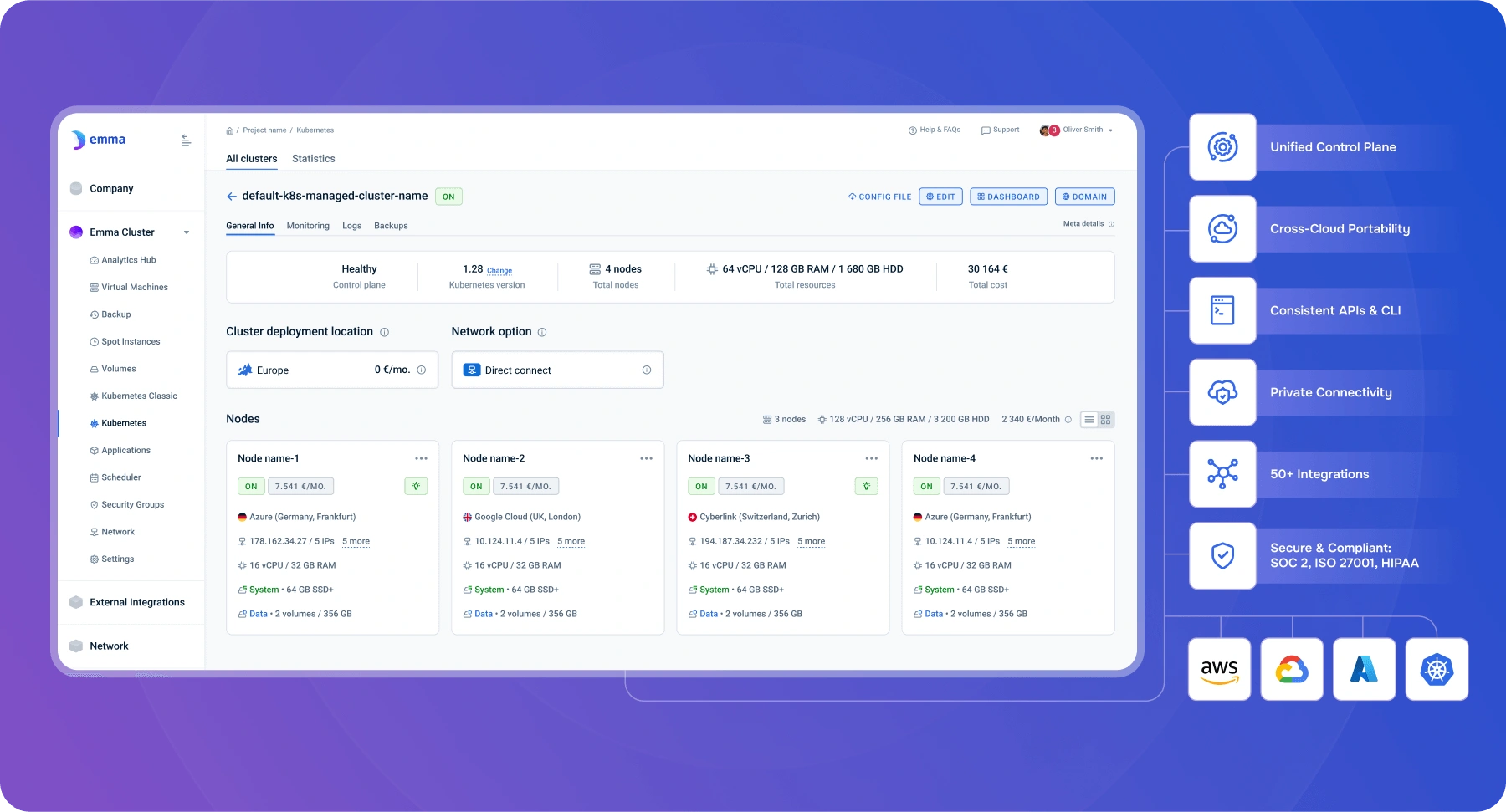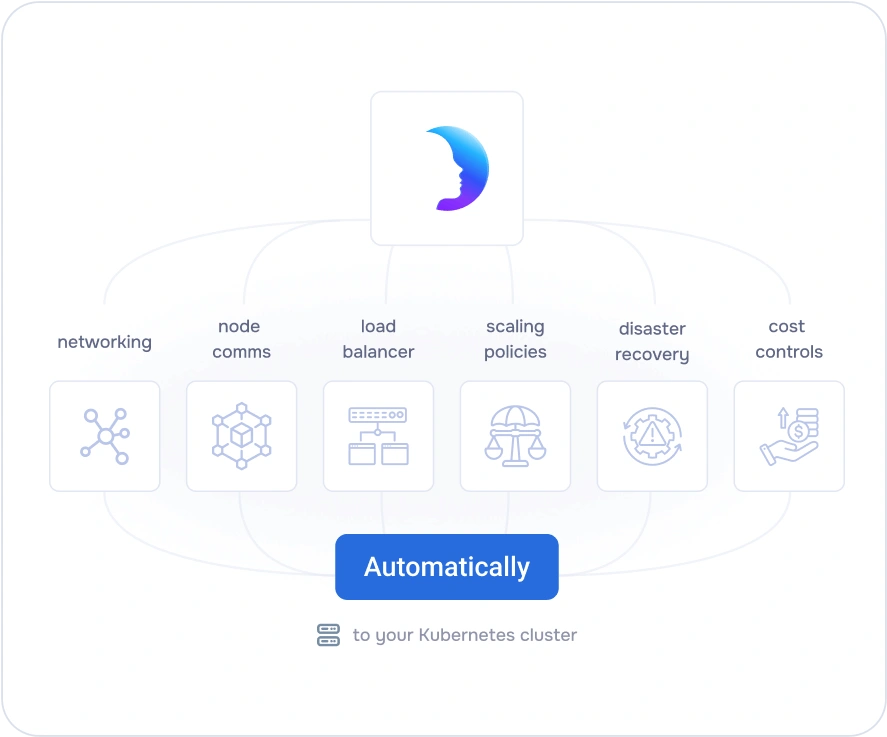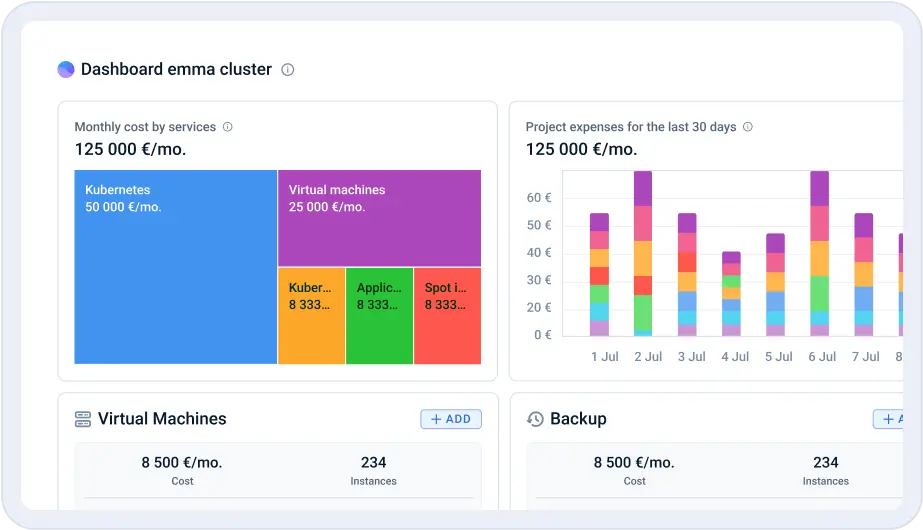
The power of Kubernetes comes with a steep price in operational complexity, security overhead, and unforeseen costs. We take on that burden so you can focus on what truly matters: innovation.



Your DevOps, SRE, and dev teams don't need to constantly battle cloud fragmentation, operational overhead, and inconsistencies.

Achieve a unified, efficient, and consistent approach to operating Kubernetes clusters across multiple cloud providers.
Teams who want to deploy production-ready K8s clusters across multiple cloud providers with consistent security policies and without the steep learning curve.
Organizations already running one or more managed services or using Terraform, but struggling with drift and multi-cloud sprawl.
Teams that need to get to market quickly with reliable infrastructure, but with limited resources and expertise.
Companies that want a centralized multi-cluster management platform to easily onboard and manage new clusters as they expand, apply consistent policies, and monitor all environments from one console without additional overhead.
Large organizations running hybrid or multi-cloud strategies that need consistency, governance, compliance and auditability across every environment.
Explore other Kubernetes features that empower you to run resilient, scalable applications and focus on what truly matters: innovation.
Ensure your cloud resources and expenses are efficiently managed and aligned with business goals, maximizing value and minimizing waste.